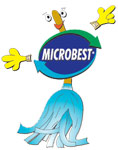
Help other Pets
from being poisoned Tweet this Page
Chemicals, Foods, & Medications that are Poisonous
to your Pet
Pet owner beware! Please take a few seconds and read this
short article that will tell you the things that are poisonous to your
pets. Knowing this information will help your companion from
being poisoned unnecessarily.
How to Protect your Children & your Pets from being Poisoned
- Chemical Substances Include:
Strychnine
Sodium fluoroacetate
Phosphorus
- Zinc Phosphide
- rat/mouse/mole/roach poisons & rodents killed by same. Phosphorus is
also found in fireworks, matches, matchboxes, and fertilizer.
Arsenic
Metaldehyde
Lead: slug/snail bait; some ant poisons, weed killers and insecticides;
arsenic is a common impurity found in many chemicals. Commercial paints,
linoleum, batteries are sources of lead.
Warfarin (Decon; Pindone): grain feeds used as rat/ mouse poison, Also used as
a prescription anti-coagulant for humans, various brand names, such as
coumadin. The animal bleeds to death. Vitamin-K is antidote: look for purplish
spots on white of eyes and gums (at this point animal is VERY sick).
Antifreeze (ethylene glycol): from cars. Wash down any from your driveway
as this is "good tasting" but highly toxic to most animals.
Organophosphates and Carbamates (Dichlorvos, Ectoral, Malathion, Sevin (in
high percentages) etc), Chlorinated Hydrocarbons (Chloradane, Toxaphene,
Lindane,
Methoxychlor: flea/parasite treatments, insecticides.
Petroleum products: gasoline, kerosene, turpentine.
Corrosives (acid and alkali): household cleaners; drain decloggers;
commercial solvents.
Many household cleaning products. Pine-oil products are very toxic and
should be avoided or rinsed thoroughly (bleach is a better alternative). In
particular, avoid items containing Phenol.
Garbage (food poisoning): carrion; decomposing foods; animal manure.
People Medicines: antihistamines, pain relievers (esp. aspirin), sleeping
pills, diet pills, heart preparations and vitamins. Anything smelling of
wintergreen or having methyl salicylate as an ingredient. Tylenol (acetominophen)
will kill cats.
- Chocolate
- theobromine, which is found in chocolate is toxic to cats. The darker
and more bitter the chocolate is, the more theobromine it has.
- Caffeine
- can cause problems for your cat. Do not feed it coffee, Coco Cola, or
other foods containing caffeine.
- Household Medications Include:
Medications that cats should NEVER be given:
Acetominophen (=tylenol, paracetamol) (1 tablet can be fatal to an adult
cat)
Benzocaine (the topical anaesthetic) (available in spray and cream forms---
Lanacaine and several hemherrhoid preparations have lots of benzocaine)
Benzyl alcohol
Chlorinated hydrocarbons (like lindane, chlordane, etc.)
Hexachlorophene (found in pHiso-Hex soap, among others)
Methylene Blue (used to be used for urinary infections, many cats cannot
tolerate it)
Phenazopyridine (used in combination with sulfa as AzoGantrisin: fine for
humans, deadly for cats) Phenytoin (=Dilantin) often used for seizures in
other species
Phosphate enemas (including Fleet (tm) enemas): may be fatal
Medications that can be used in certain cats with restrictions, and ONLY on
the advice of a vet include:
- Aspirin
- but not more than 1 baby aspirin (1/4 regular tablet) in 3 days!
Chloramphenicol: generally safe at doses of less than 50-100 mg 2x/day
Griseofulvin (=fulvicin)
Lidocaine: another topical anaesthetic
Megestrol acetate (Ovaban, Megace) may cause behavioral changes, breast
cancer, diabetes. Extremely useful for some conditions, so use needs to be
monitored.
Nonsteroidal Anti-inflammatory Agents (things like ibuprofen)--tend to
cause perforated ulcers. Banamine and aspirin are the best tolerated of this
class of drugs
Pepto-bismol: too high in salicylates
Smooth muscle relaxants (like Lomotil): strange behavior Tetracycline: may
cause fever, diarrhea, depression; better antibiotics are available
Thiacetarsamide (Caparsolate) used to treat heartworm in dogs
Thiamylal sodium (Biotal) used for brief surgeries. Animals become
sensitized after repeat exposures. If you change vets, be SURE to get your
records so that the new vet can tell if this drug has been used previously.
Urinary acidifiers; be careful of dosage.

Alfred & Tippy Say:
One of the most common pet emergencies is from pets being poisoned by
common household chemicals.
This can be avoided easily by making sure you put bottles and containers away
in a safe and secure place.
Basically take the same precautions you would with a small child.
But also many household cleaning products contain toxins that can harm the
pet's even after using them.
We urge you to take a look at some natural cleaning alternatives to harsh
conventional cleaning products.
More info on Pet Safe Cleaning
Products

Safe for Children
& Pets!
Find more info on Pet Care